Secure VPN for Android: Browse, Stream, and Stay Private Anywhere
Android is flexible, fast, and many devices run on this operational system. But that also makes it a target. From sketchy café hotspots to malware-riddled apps, your Android smartphone carries a lot of sensitive data that thieves love.
In this guide, we’ll show what a secure VPN for Android really looks like, how to set it up without complex configuration, and how to spot red flags in a free VPN. We’ll also share quick checks that prove your VPN connection is sealed. At the end, we’ll explain how VeePN fits the checklist and why it’s a smart pick for private everyday use.

Why you need a secure VPN for Android today
Threats on mobile aren’t theoretical anymore. They’re daily annoyances that turn into real losses if we ignore them.
Fake apps and RATs hunt your online activity
Security teams recently tracked PlayPraetor, an Android remote-access trojan spread with fake Google Play pages and ads. It can log keystrokes, read screens, and steal credentials. That’s the kind of pest a secure VPN can’t block alone, but strong encryption plus safer habits dramatically reduce the fallout on risky networks.
Public Wi-Fi can mislead your Android device into the wrong hotspot
The “SSID confusion” research shows clients can be nudged to connect to an attacker-controlled network that looks legitimate. When that happens, unencrypted Internet traffic or weakly protected apps are easy pickings. A VPN adds a private tunnel on top of the mess so snoops see gibberish.
Browser bugs still leak data
Chrome had a 2025 vulnerability associated with cross-origin data leakage that required urgent updating. Even if you keep your browser patched, an always-on VPN connection adds an extra layer when sites or networks misbehave.
Password dumps keep growing
Researchers reported record-breaking credential exposures in 2025. Encrypting traffic with a secure VPN won’t fix reused passwords, but it does prevent your logins from being grabbed on weak networks while you sign in.
Having said about the dangers, let’s discover what makes a VPN provider for Android users really secure.
What makes a secure VPN for Android actually secure
We see tons of marketing. Let’s cut through it. These are the advanced security features that matter on an Android app and why they help in normal, non-techy life.
DNS leak protection
If DNS queries slip outside the tunnel, sites and ISPs still learn where you go. Solid apps route lookups through private resolvers inside the tunnel and block IPv6 or WebRTC paths that can cause data leaks.
Kill Switch that actually stops packets
A real Kill Switch cuts all traffic the moment the connection drops so your location or IP doesn’t flash. It should work at the system level, not just as a cosmetic toggle. If you’re switching cafés or your train dips into a tunnel, that automatic cut-off protects sensitive data mid-session.
Modern protocols and strong ciphers
Prefer WireGuard or OpenVPN with AES-256. These keep overhead low while sealing your packets. That means less buffering on streaming services like Netflix or Amazon prime video, and tighter security on hostile hotel Wi-Fi.
Split tunneling for specific apps
Sometimes you only want the VPN on for your browser and streaming while your banking app or local smart-home app stays on the local network. Good clients let you choose per-app routes, which trims latency and avoids broken local services. It also helps when a work tool dislikes VPNs.
A strict No Logs policy with clarity
A provider should not keep activity logs. Clear policy pages and independent checks help here. If a product logs, it can be compelled to hand over data.
Capacity, not just locations
Look for a wide network of servers and unlimited bandwidth. A crowd-free network keeps favorite shows playing smoothly and large file downloads moving on time. Big maps don’t help if every node is saturated.
Security extras that smooth daily use
Some extra VPN features should block ads and malicious domains to cut noise on low-quality hotspots. Optional Double VPN might add another hop for users who want extra obfuscation. Stealth mode helps on school or hotel networks that try to block VPNs outright.
VeePN, a reliable VPN provider, ticks all the boxes to be called a secure VPN for Android.
How to set up VeePN for Android without complex configuration
VeePN’s Android app takes a minute to install and works right away.
- Grab a subscription that fits your needs from the pricing page.
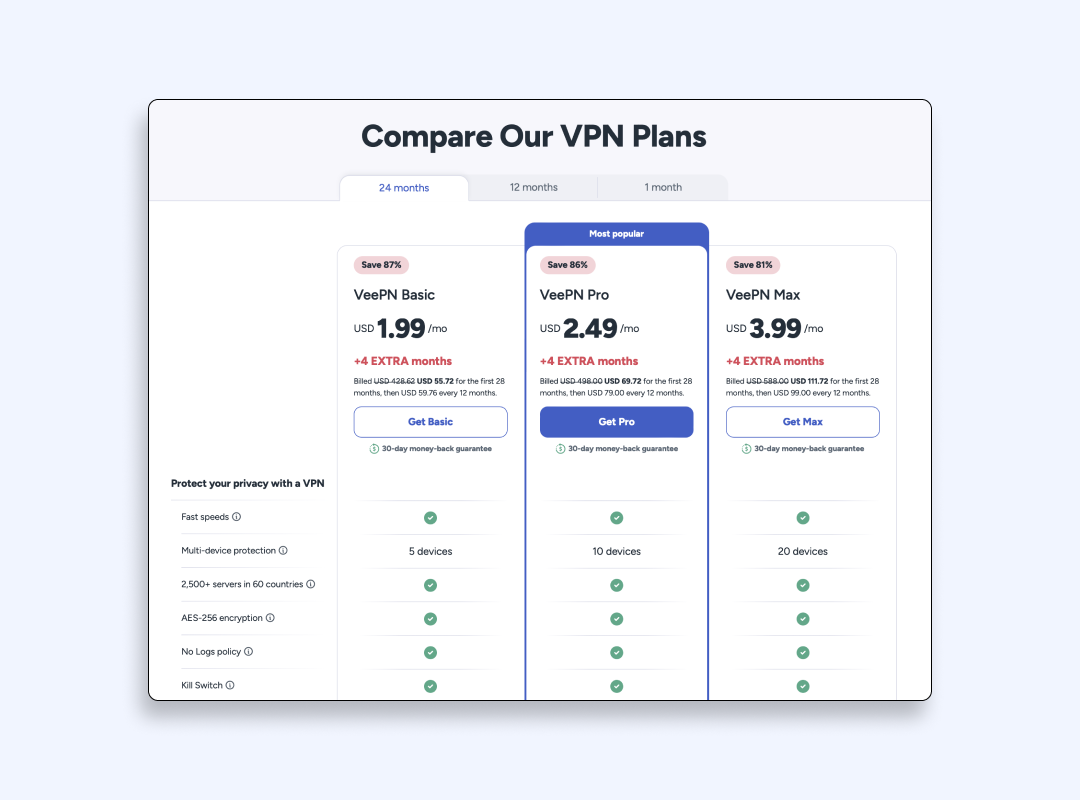
- Install the app on your Android device.
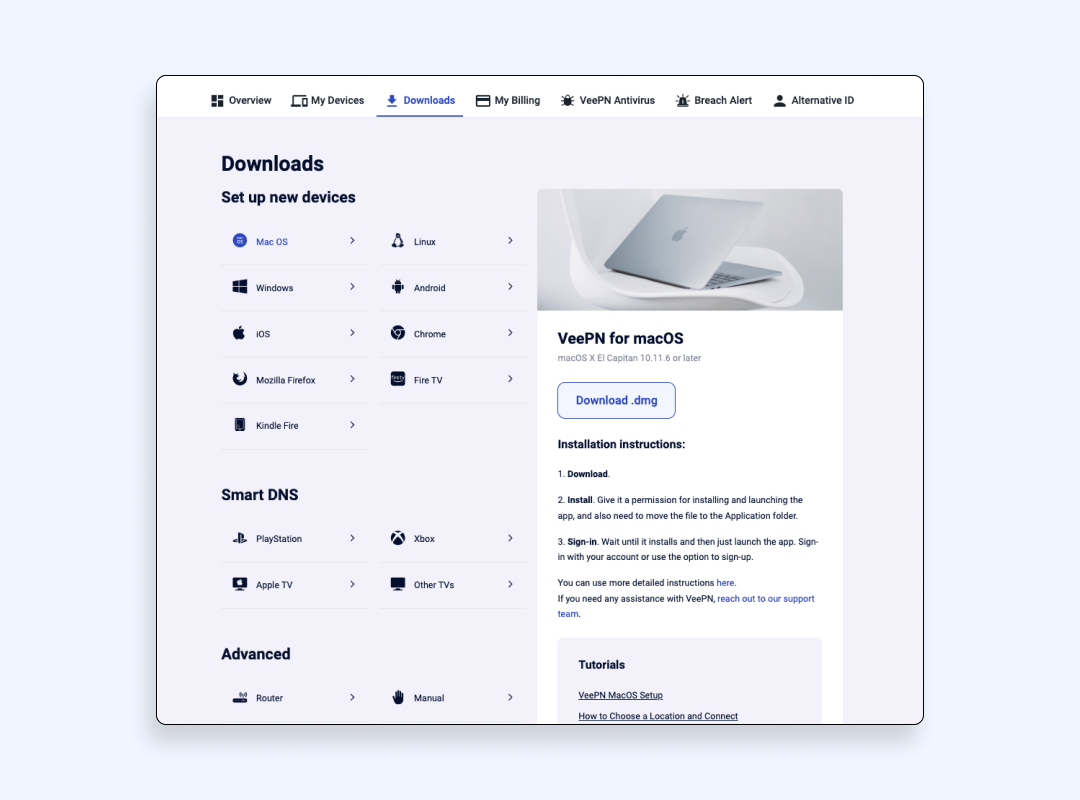
- Launch the app and pick the fastest server or any location you like. Choose the closest country for speed, or a specific region to unlock blocked sites.
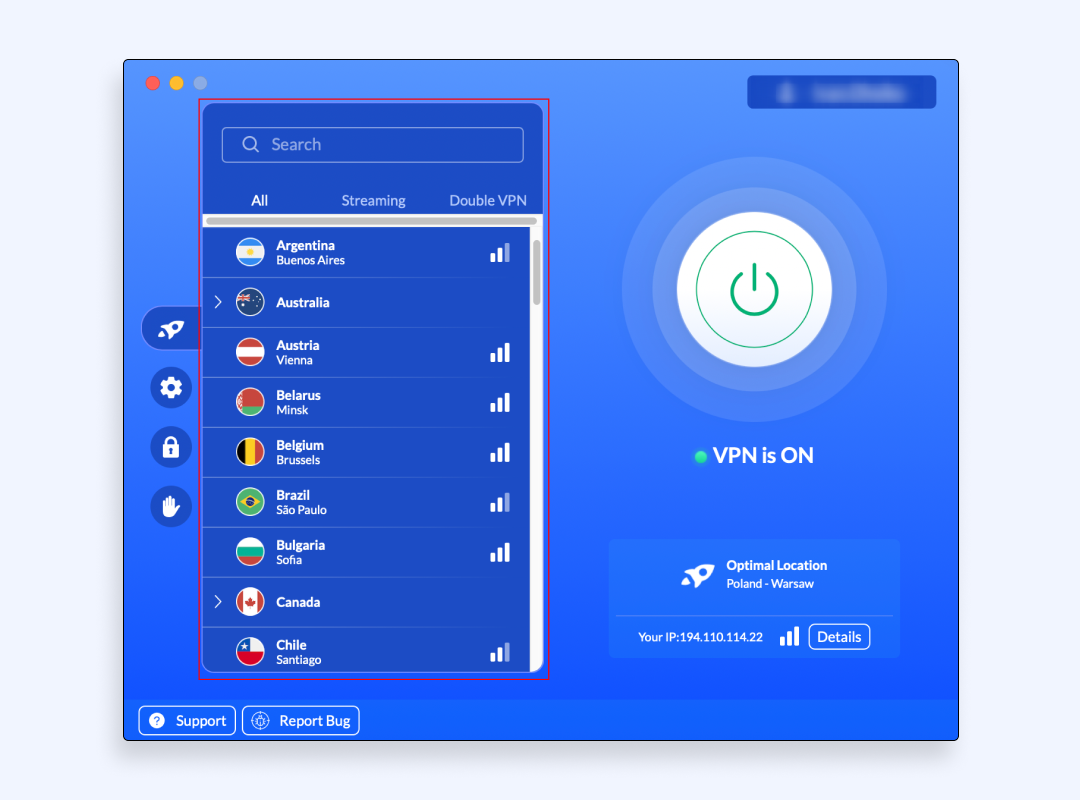
- Open Settings and ensure Kill Switch is toggled on (it is on by default). Toggle other security settings you might need.
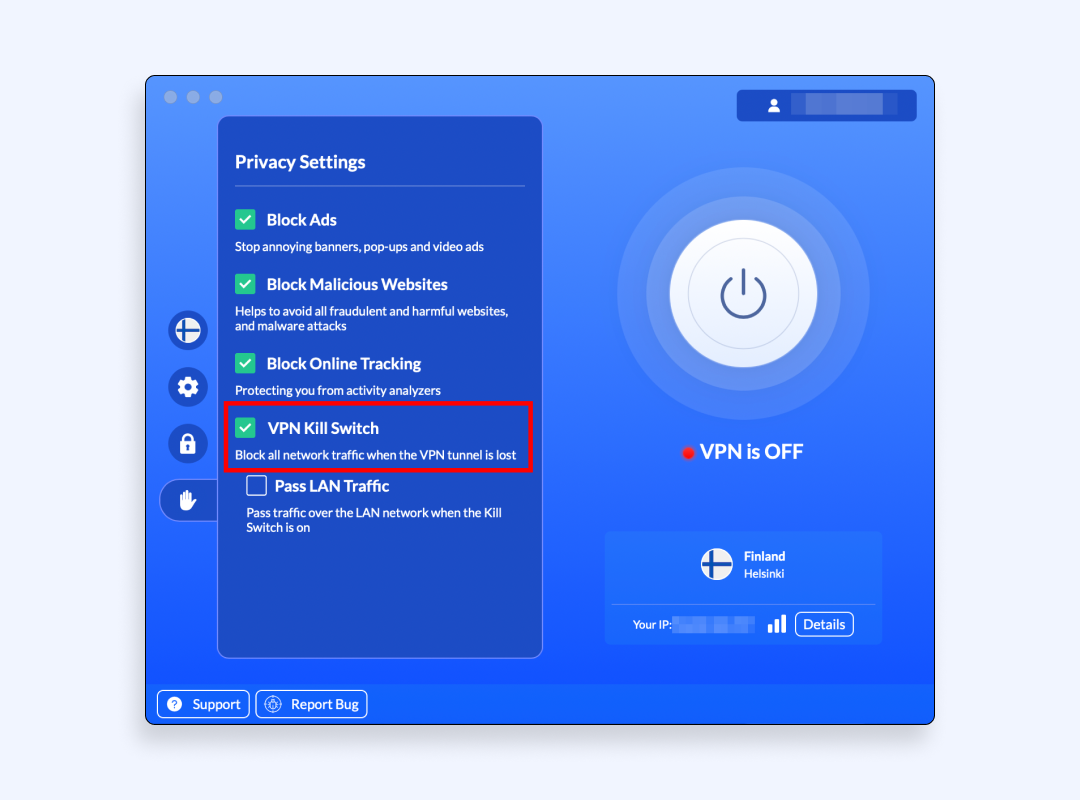
- Turn the VeePN on.
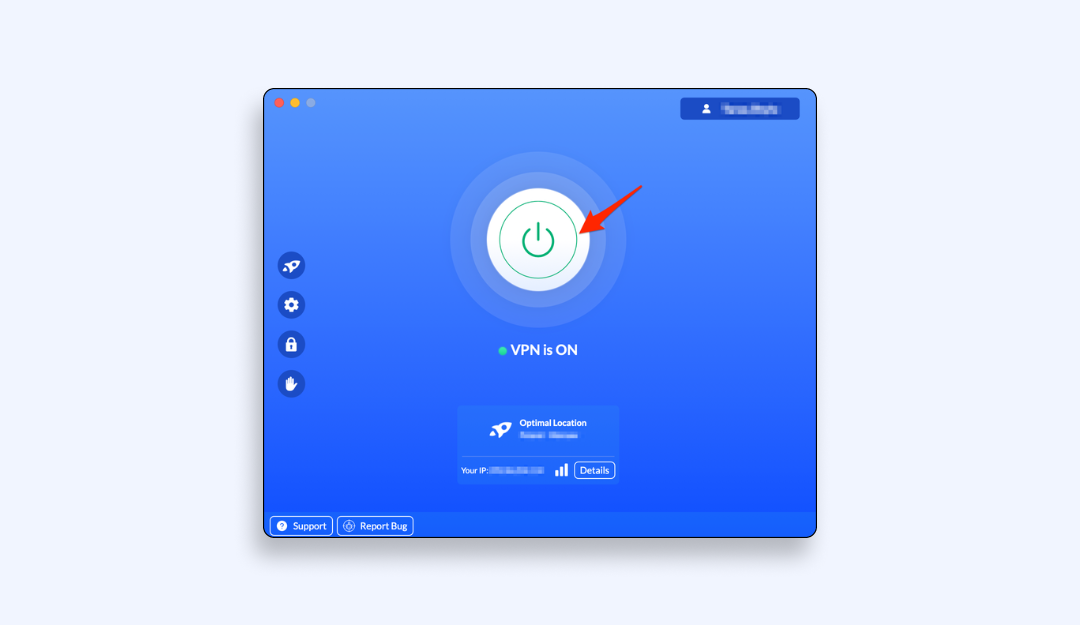
- Use your Android device safely.
You may also run a quick leak test. If you see your real country or ISP, something’s off. Our step-by-step article shows what “good” looks like and simple fixes.
Real-world ways to use a secure VPN on your Android device
Let’s translate features into daily wins. Small changes, big payoff.
Safer logins on café and airport Wi-Fi
Open networks expose your online activity to anyone nearby. With a secure VPN, your Internet packets are encrypted so the attacker who set up that “free_airport_wifi” decoy gets nothing usable. Combine this with HTTPS and you’re in good shape.
Cleaner streaming on trips
Traveling to Canada or Europe and your favorite shows vanish xon streaming services? A stable VPN connection with enough capacity helps you access your libraries on phones, tablets, or computers. For school or dorm filtering, our Netflix guide shows the flow without guesswork.
Safer banking while you commute
If your app forces a login on a sketchy hotspot, the tunnel keeps credentials scrambled. Our banking piece explains why a private tunnel plus 2FA is a strong combo when you move between LTE and Wi-Fi.
Free VPN vs premium subscription on Android
A free version can be tempting. We get it. But you should know the trade-offs.
Limits and hidden costs
Many free apps enforce strict usage limits, throttle bandwidth, insert ads, or log and sell behavior. That’s the opposite of a strict no logging policy and online privacy.
Dangerous security gaps
Most free tools skip DNS leak protection, skimp on Kill Switches, or lag on security updates. Combine that with fake-store malware and you have a risky mix. Recent Android spyware campaigns pretending to be “antivirus” show how easy it is to get tricked by a polished installer.
When a premium version is worth it
If you pay, you should expect steady speeds, strong encryption, real support, and clear policies. That’s the bundle you need for reliable day-to-day protection. And that’s exactly what VeePN offers.
Try VeePN on your Android device with a risk-free 30-day money-back guarantee. Encrypt your Internet traffic, stop leaks, and stream without limits.
FAQ
The safest choice offers strong encryption, DNS leak protection, a Kill Switch, and a strict no logging policy. Look for a trustworthy Android app with frequent updates and a wide server network so you keep speed and privacy. Discover more in this article.
Android includes basic VPN support, but it is bare-bones and lacks extras like Kill Switch, split tunneling, and robust DNS leak protection. A dedicated VPN for Android app is easier to install, connect, and manage across specific apps.
There are a few safer free VPN options, but most have usage limits, fewer locations, and weaker features. If you need reliability for public Wi-Fi or streaming, a premium subscription with clear policies and unlimited bandwidth is the safer bet.
VeePN is freedom
Download VeePN Client for All Platforms
Enjoy a smooth VPN experience anywhere, anytime. No matter the device you have — phone or laptop, tablet or router — VeePN’s next-gen data protection and ultra-fast speeds will cover all of them.
Download for PC Download for Mac IOS and Android App
IOS and Android App
Want secure browsing while reading this?
See the difference for yourself - Try VeePN PRO for 3-days for $1, no risk, no pressure.
Start My $1 TrialThen VeePN PRO 1-year plan






